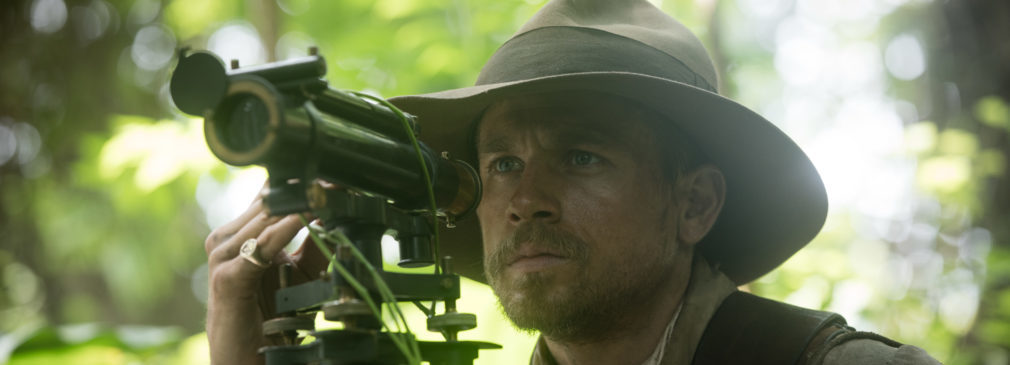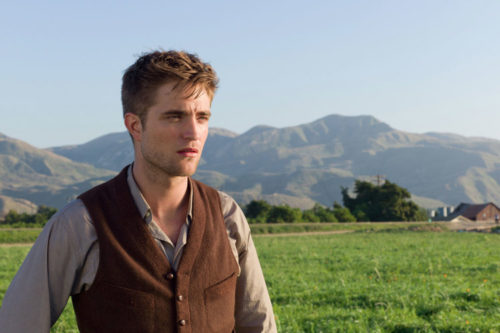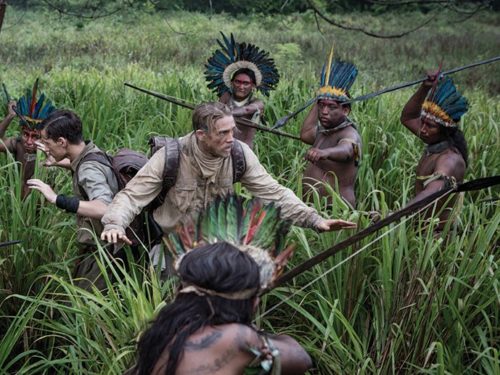
Share
“The Lost City of Z” begins rather modestly. Percy Fawcett leaves his family to go on a mission—for their own good, or so he tells himself. Before he leaves, his wife tell him she’s pregnant, which means we’ll inevitably get the scene where he returns home and isn’t recognized by his own children. Was the journey worth it, he’ll ask himself. I’ve seen this movie before and wasn’t too keen on seeing it again.

But I was wrong. This film is much more than that. It’s a character epic, large in scope but intensely personal. Fawcett, played by Charlie Hunnam, is a military man in turn-of-the-century England, whose perceived purpose in life is to climb the ladder of society and to die as nobly as possible, but its rungs have been greased by his father’s reputation as a drunkard. Despite his most patriotic accomplishments, Fawcett is seen as less-than, the offspring of failure, and is passed over for a combat assignment—one that would likely end with a parade and medals—for a map-charting mission in South America. He reluctantly accepts, seeing it as a slight.
But Fawcett was wrong. In mapping out an Amazonian river, he and his assistants find hostile Indians, starvation, disease and the madness that follows. But that’s not all. While searching for food, he feels the familiar softness of the rainforest floor turn to an uneven firmness. He bends down to pick the object up. Pottery. He studies his surroundings more closely than before. A nearby stone is imprinted with a hieroglyphic. With these crumbs of an ancient, advanced civilization, Fawcett casts aside his societal ambitions and dedicates his life to the discovery of a lost city he calls “Z.” One civilization for another.

At first, it seems Fawcett is driven by an explorer’s romanticism: to see something that nobody has seen, to touch something that nobody has touched. But as certain events transpire, it goes deeper than that. He begins to see himself in the Indians—denigrated as savages by the same society that denigrated him for his own family history. After living a life defined by social status, where a man’s worth is measured by how quickly he can charm a room, he finds something worthwhile in Z or in the search thereof. As the film’s final moments unfold, you get the feeling that Fawcett wouldn’t have it any other way.

Gray, who also wrote the movie, delivers a profound, unrequited love story between man and the unattainable. Everybody has their own lost city, the clues of which seem only to appear to them and no one else. Z is a job, a person, a place or a pink giraffe in a crane machine. In this way, “The Lost City of Z” is immensely relatable and should, therefore, make mountains of cash at the box office. If only.
4 out of 5 stars














